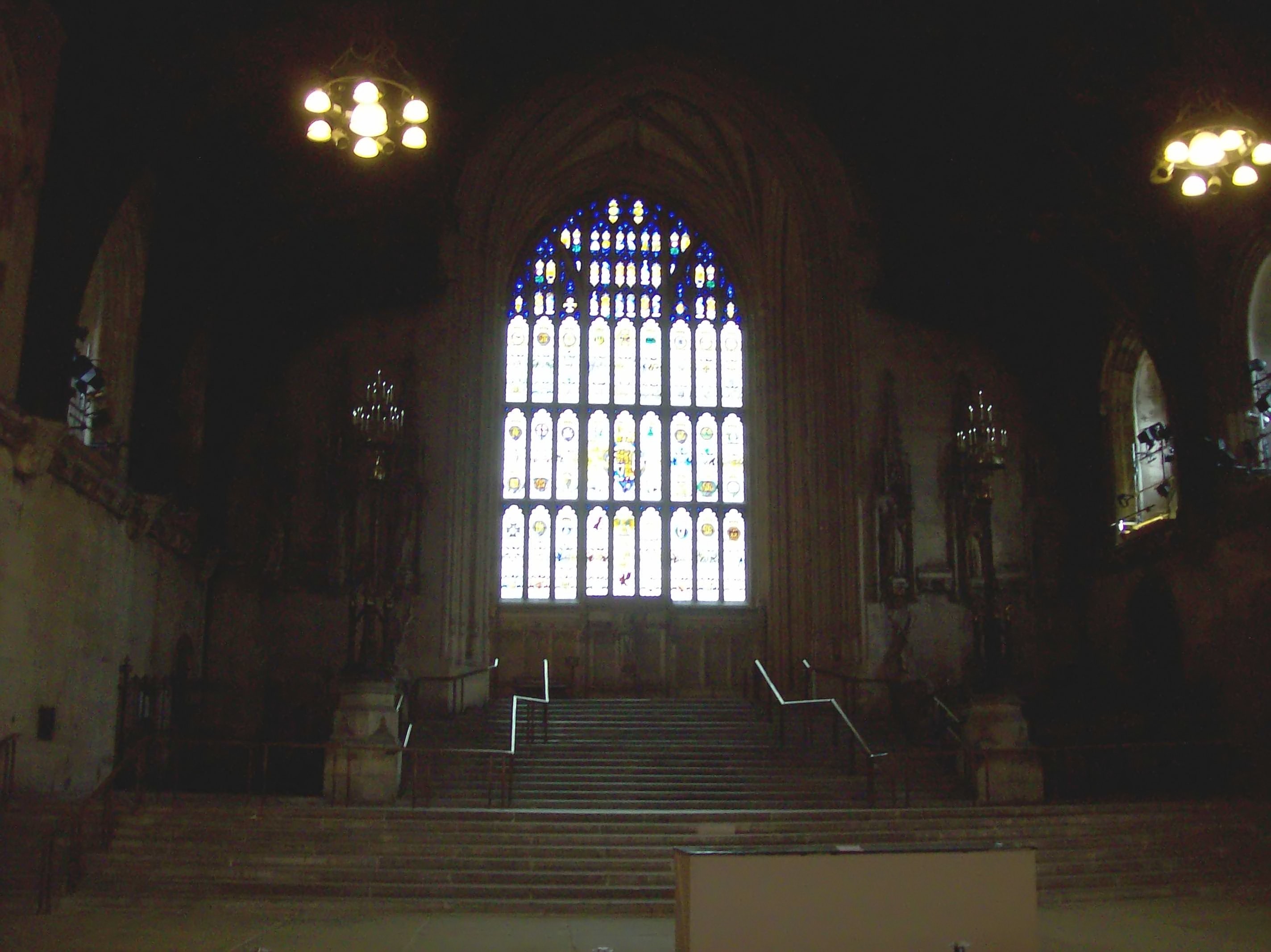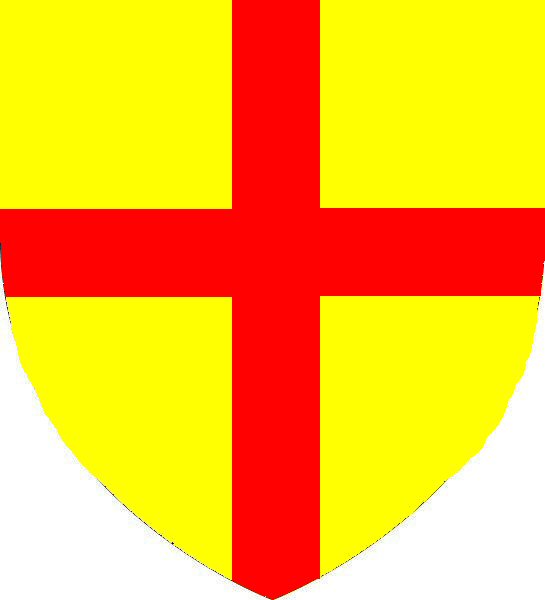|
Mad Parliament
The Oxford Parliament (1258), also known as the Mad Parliament and the First English Parliament, assembled during the reign of Henry III of England. It is best known for the Provisions of Oxford, a set of constitutional reforms that forced the king to govern according to the advice of a council of barons. Name The parliament came to be known as "Mad" as a result of an entry in the Latin chronicle ''Liber de Antiquis Legibus'' which read "". However, historians A.G. Little and R.L. Poole have shown that the word was overwritten in the original text, and may have originally read instead. Therefore, it would have originally read "" ("that distinguished parliament"). Background By the 1250s, there was widespread resentment among the barons against Henry III. The causes included the favoritism he showed to his Lusignan half-brothers, William and Aymer de Valence. There was also opposition to Henry's unrealistic plans to conquer the Kingdom of Sicily for his second son, Edmund ... [...More Info...] [...Related Items...] OR: [Wikipedia] [Google] [Baidu] |
Henry III Of England
Henry III (1 October 1207 – 16 November 1272), also known as Henry of Winchester, was King of England, Lord of Ireland, and Duke of Aquitaine from 1216 until his death in 1272. The son of King John and Isabella of Angoulême, Henry assumed the throne when he was only nine in the middle of the First Barons' War. Cardinal Guala Bicchieri declared the war against the rebel barons to be a religious crusade and Henry's forces, led by William Marshal, defeated the rebels at the battles of Lincoln and Sandwich in 1217. Henry promised to abide by the Great Charter of 1225, a later version of the 1215 '' Magna Carta'', which limited royal power and protected the rights of the major barons. His early rule was dominated first by Hubert de Burgh and then Peter des Roches, who re-established royal authority after the war. In 1230, the King attempted to reconquer the provinces of France that had once belonged to his father, but the invasion was a debacle. A revolt led by William ... [...More Info...] [...Related Items...] OR: [Wikipedia] [Google] [Baidu] |
Roger Bigod, 4th Earl Of Norfolk
Roger Bigod (c. 1209–1270) was 4th Earl of Norfolk and Marshal of England. Origins He was the eldest son and heir of Hugh Bigod, 3rd Earl of Norfolk (1182-1225) by his wife Maud, a daughter of William Marshal, 1st Earl of Pembroke (1147-1219), Marshal of England. His younger brother was Hugh Bigod (1211-1266), Justiciar. After the death of his father in 1225, the young Roger became the ward of William Longespée, 3rd Earl of Salisbury. Career In 1228, although still under-age but by now married and in a second wardship to Alexander II of Scotland following his 1225 marriage to Alexander's sister Isabella,Robert C. Stacey, ‘Bigod, Roger (III), fourth earl of Norfolk (c.1212–1270)’, Oxford Dictionary of National Biography, Oxford University Press, 200accessed 20 Aug 2014/ref> he succeeded to his father's estates including Framlingham Castle after his unexpected death in 1225. However, the earldom was only granted to him by Henry III in 1233. Roger was already a wealthy ... [...More Info...] [...Related Items...] OR: [Wikipedia] [Google] [Baidu] |
Archbishop Of Canterbury
The archbishop of Canterbury is the senior bishop and a principal leader of the Church of England, the ceremonial head of the worldwide Anglican Communion and the diocesan bishop of the Diocese of Canterbury. The current archbishop is Justin Welby, who was enthroned at Canterbury Cathedral on 21 March 2013. Welby is the 105th in a line which goes back more than 1400 years to Augustine of Canterbury, the "Apostle to the English", sent from Rome in the year 597. Welby succeeded Rowan Williams. From the time of Augustine until the 16th century, the archbishops of Canterbury were in full communion with the See of Rome and usually received the pallium from the pope. During the English Reformation, the Church of England broke away from the authority of the pope. Thomas Cranmer became the first holder of the office following the English Reformation in 1533, while Reginald Pole was the last Roman Catholic in the position, serving from 1556 to 1558 during the Counter-Reformation. ... [...More Info...] [...Related Items...] OR: [Wikipedia] [Google] [Baidu] |
Boniface Of Savoy (bishop)
Boniface of Savoy ( – 18 July 1270) was a medieval Bishop of Belley in Savoy and Archbishop of Canterbury in England. He was the son of Thomas, Count of Savoy, and owed his initial ecclesiastical posts to his father. Other members of his family were also clergymen, and a brother succeeded his father as count. One niece was married to King Henry III of England and another was married to King Louis IX of France. It was Henry who secured Boniface's election as Archbishop, and throughout his tenure of that office he spent much time on the continent. He clashed with his bishops, with his nephew-by-marriage, and with the papacy, but managed to eliminate the archiepiscopal debt which he had inherited on taking office. During Simon de Montfort's struggle with King Henry, Boniface initially helped Montfort's cause, but later supported the king. After his death in Savoy, his tomb became the object of a cult, and he was eventually beatified in 1839. Early life Boniface and his elde ... [...More Info...] [...Related Items...] OR: [Wikipedia] [Google] [Baidu] |
Oxford
Oxford () is a city in England. It is the county town and only city of Oxfordshire. In 2020, its population was estimated at 151,584. It is north-west of London, south-east of Birmingham and north-east of Bristol. The city is home to the University of Oxford, the oldest university in the English-speaking world; it has buildings in every style of English architecture since late Anglo-Saxon. Oxford's industries include motor manufacturing, education, publishing, information technology and science. History The history of Oxford in England dates back to its original settlement in the Saxon period. Originally of strategic significance due to its controlling location on the upper reaches of the River Thames at its junction with the River Cherwell, the town grew in national importance during the early Norman period, and in the late 12th century became home to the fledgling University of Oxford. The city was besieged during The Anarchy in 1142. The university rose to dom ... [...More Info...] [...Related Items...] OR: [Wikipedia] [Google] [Baidu] |
Excommunication (Catholic Church)
In the canon law of the Catholic Church, excommunication (Lat. ''ex'', out of, and ''communio'' or ''communicatio'', communion, meaning exclusion from the communion), the principal and severest censure, is a penalty that excludes the guilty Catholic of all participation in church life. Being a penalty, it presupposes guilt and being the most serious penalty that the Catholic Church can nowadays inflict, it supposes a grave offense. The excommunicated person is basically considered as an exile from the Church, for a time at least, in the sight of ecclesiastical authority. Excommunication is intended to invite the person to change behaviour or attitude, repent, and return to full communion. It is not an "expiatory penalty" designed to make satisfaction for the wrong done, much less a "vindictive penalty" designed solely to punish. Excommunication, which is the gravest penalty of all, is always "medicinal", and is "not at all vindictive". The Catholic Church teaches in the Council ... [...More Info...] [...Related Items...] OR: [Wikipedia] [Google] [Baidu] |
Gospel
Gospel originally meant the Christian message ("the gospel"), but in the 2nd century it came to be used also for the books in which the message was set out. In this sense a gospel can be defined as a loose-knit, episodic narrative of the words and deeds of Jesus, culminating in his trial and death and concluding with various reports of his post-resurrection appearances. Modern scholars are cautious of relying on the gospels uncritically, but nevertheless, they provide a good idea of the public career of Jesus, and critical study can attempt to distinguish the original ideas of Jesus from those of the later authors. The four canonical gospels were probably written between AD 66 and 110. All four were anonymous (with the modern names added in the 2nd century), almost certainly none were by eyewitnesses, and all are the end-products of long oral and written transmission. Mark was the first to be written, using a variety of sources. The authors of Matthew and Luke both independently ... [...More Info...] [...Related Items...] OR: [Wikipedia] [Google] [Baidu] |
Westminster Hall
The Palace of Westminster serves as the meeting place for both the House of Commons of the United Kingdom, House of Commons and the House of Lords, the two houses of the Parliament of the United Kingdom. Informally known as the Houses of Parliament, the Palace lies on the north bank of the River Thames in the City of Westminster, in central London, England. Its name, which derives from the neighbouring Westminster Abbey, may refer to several historic structures but most often: the ''Old Palace'', a England in the Middle Ages, medieval building-complex largely Burning of Parliament, destroyed by fire in 1834, or its replacement, the ''New Palace'' that stands today. The palace is owned by the Crown. Committees appointed by both houses manage the building and report to the Speaker of the House of Commons (United Kingdom), Speaker of the House of Commons and to the Lord Speaker. The first royal palace constructed on the site dated from the 11th century, and Westminster beca ... [...More Info...] [...Related Items...] OR: [Wikipedia] [Google] [Baidu] |
Edward I Of England
Edward I (17/18 June 1239 – 7 July 1307), also known as Edward Longshanks and the Hammer of the Scots, was King of England and Lord of Ireland from 1272 to 1307. Concurrently, he ruled the duchies of Aquitaine and Gascony as a vassal of the French king. Before his accession to the throne, he was commonly referred to as the Lord Edward. The eldest son of Henry III, Edward was involved from an early age in the political intrigues of his father's reign, which included a rebellion by the English barons. In 1259, he briefly sided with a baronial reform movement, supporting the Provisions of Oxford. After reconciliation with his father, however, he remained loyal throughout the subsequent armed conflict, known as the Second Barons' War. After the Battle of Lewes, Edward was held hostage by the rebellious barons, but escaped after a few months and defeated the baronial leader Simon de Montfort at the Battle of Evesham in 1265. Within two years the rebellion was extin ... [...More Info...] [...Related Items...] OR: [Wikipedia] [Google] [Baidu] |
Peter De Montfort
Peter de Montfort (or Piers de Montfort) (c. 1205 – 4 August 1265) of Beaudesert Castle was an English magnate, soldier and diplomat. He is the first person recorded as having presided over Parliament as a ''parlour'' or ''prolocutor'', an office now known as Speaker of the House of Commons. He was one of those elected by the barons to represent them during the constitutional crisis with Henry III in 1258. He was later a leading supporter of Simon de Montfort, 6th Earl of Leicester against the King. Both he and Simon de Montfort were slain at the Battle of Evesham on 4 August 1265. Life Peter de Montfort was the son of Thurstan de Montfort (d.1216) by a daughter of William I de Cantilupe (d.1239) of Aston Cantilupe, Warwickshire, Steward of the Household to King John. Montfort's principal estate was at Beaudesert Castle near Henley-in-Arden, Warwickshire, said to have been built by an earlier Thurstan de Montfort (died c.1170) on land granted by his great-uncle, Henry de New ... [...More Info...] [...Related Items...] OR: [Wikipedia] [Google] [Baidu] |






.jpg)

